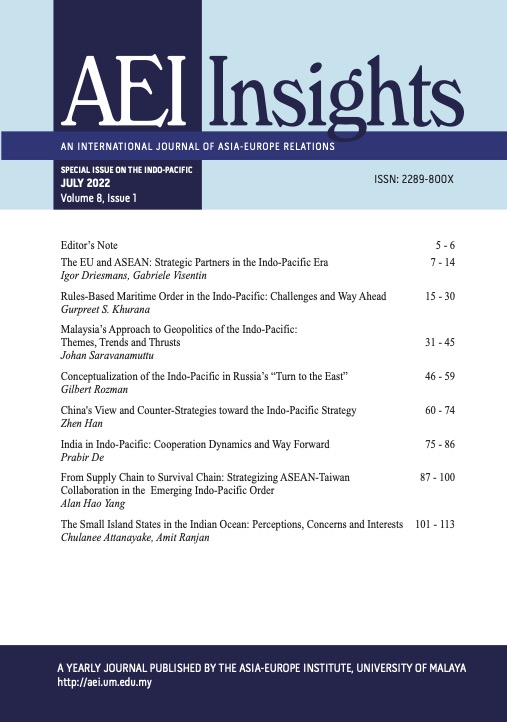Rules-Based Maritime Order in the Indo-Pacific: Challenges and Way Ahead
Keywords:
Indo-Pacific, geopolitics, geostrategic frontier, holistic maritime security, geo-economics, maritime strategy, maritime law, free and open Indo-Pacific (FOIP), rules-based order (RBO), inclusivenessAbstract
The advent of the 21st Century witnessed a mutation in the geopolitical conceptualisation of Indo-Pacific. A 'security' dimension was now added to the erstwhile ‘economic’ linkage between Indian and Pacific oceans. The current context initially related to a vision of prosperity of the maritime-configured supra-region, enabled by regional cooperation to secure a rules-based order at sea and in the littoral, which has lately expanded to many other forms of collaboration that enable well-being across the region. It refers to China as a predominant factor, though not the only one.
With the “rise of Asia” now replaced by the “rise of the Indo-Pacific”, arguably, it represents the single most important geopolitical development since the end of the Cold War with major consequences for the region and its stakeholders. Alike the developed West that underwent a tumultuous churning before it achieved prosperity, the attainment of the Indo-Pacific vision is not preordained. Although the key players seem to be more aligned since 2017, when the United States articulated its Indo-Pacific strategy in a bellicose and divisive manner, their varied—and even divergent—interests and objectives pose substantive challenges to achieve the vision.
This paper aims to unravel these challenges by examining the perspectives of these players in the context of the geopolitical landscape. The perspectives relate to key concepts: Indo- Pacific per se, geostrategic frontiers, holistic security, free, open and rule-based order, inclusiveness and polarisation. The analysis attempts to identify and reconcile the differences, if not the contradictions. The way ahead may lie in the more-aligned players instituting a regional architecture encompassing the multilateral arrangements—old and new—that could enable cooperation at the conceptual, political and functional levels, and guided by a thematic prioritisation. Such partnerships may offer effective—though graduated—responses to the regional insecurities, including those posed by State and non-State entities.







